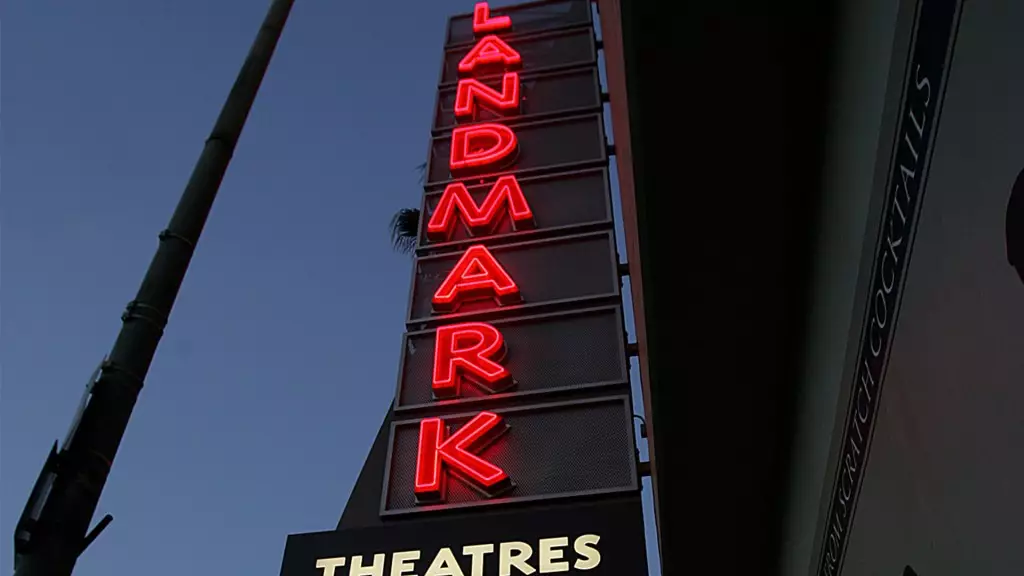In recent years, the reputation and financial stability of Landmark Theatres have been compromised significantly. The confluence of the COVID-19 pandemic, surging interest rates, and strikes within Hollywood has led to an unprecedented decline in the chain’s value, as revealed in a deposition from its owner, Charles Cohen. This drastic downturn is currently being scrutinized in a court case involving Fortress Credit Corp, which has claimed that Cohen defaulted on a loan that requires him to auction off Landmark properties to recuperate losses.
The economic repercussions of the pandemic have been severe for the theater industry overall, but Landmark appears to be particularly hard-hit. The considerable fallout from COVID-19 halted business operations, forcing theaters to remain shuttered for extended periods. Even as restrictions lifted, consumer behaviors changed, and audiences were slow to return to traditional movie-going practices. Faced with the compounding challenges of other disruptions, the company had no choice but to adapt, but it seems the adjustments are scant compared to the scale of adversity they face.
As proceedings unravel in the New York State Supreme Court, Cohen’s future with Landmark hangs precariously. A judge has ordered an auction, a move that reveals the serious financial distress engulfing the company. Alongside the necessity to part with valuable assets—each tied to a loan—Cohen’s personal financial liability amounts to $187 million. This staggering guarantee heightens the stakes: if auction proceeds fall short of the debt, Cohen will be left to contend with substantial personal financial consequences.
Fortress Credit Corp has been vigilant in ensuring that Cohen does not transfer personal assets that could jeopardize their chances of recapturing the lent funds. The lender suspects Cohen may have engaged in a strategy to sequester valuable assets in the wake of impending legal obligations. Fortress claims Cohen has shifted over $70 million in assets recently, highlighting a transfer of significant properties to new ownership structures that might protect them from creditor claims. Such maneuvers raise red flags in the eyes of Fortress, signaling potential attempts to evade financial liability.
The deposition sheds light on Landmark’s dismal financial condition. With mounting losses, Cohen’s acknowledgment that Landmark has seen “more than negative $14 million net revenue” epitomizes the grim situation. He also detailed the compounding factors behind this downturn, including rising interest costs and a marked decrease in moviegoer turnout.
Compounded by Hollywood strikes that halted film production for critical months, Cohen lamented, “People are just not going [to theaters].” The strikes by screenwriters and actors aimed to negotiate better working conditions and pay, ultimately reconfiguring the entire movie production landscape. Unfortunately, these industry sectors’ prolonged standstill has made it painfully clear just how fragile the market for theaters has become.
As Landmark seeks to navigate these turbulent waters, the road ahead is fraught with uncertainty. The film industry is in a state of flux, and theater chains are racing against the clock to redefine themselves in a post-pandemic world. A persistent theme has emerged: theaters are experimenting with hybrid models that marry arthouse productions with big-budget blockbusters. Such strategies attempt to lure back audiences that have become accustomed to streaming at home.
For Landmark, the closure of their flagship Westside LA location marked a significant blow to their presence in the arthouse cinema ecosystem. It underscored the challenging environment in which even renowned chains struggle to satiate a changing audience’s preferences. The focus on younger demographics, coupled with advanced marketing techniques and enhanced theater experiences, becomes even more crucial in a landscape where just opening the doors may not be enough.
As the clock ticks toward the potential auction of Landmark’s properties, the future for Cohen, the theaters, and the wider exhibition market remains painfully uncertain. While he advocates for a settlement and vows to maintain the business, the reality is that landmark’s survival hinges on not just financial recovery but an entirely renewal of relationships with audiences who have become accustomed to experiencing films in new ways. The next few months will be indicative of whether landmark can rise from the ashes of its current predicament and reinvigorate the essence of cinematic experiences, or if it will succumb to the pressures of evolving market demands. The cinematic landscape is ever-changing, and for Landmark Theatres, the need for metamorphosis is dire.
